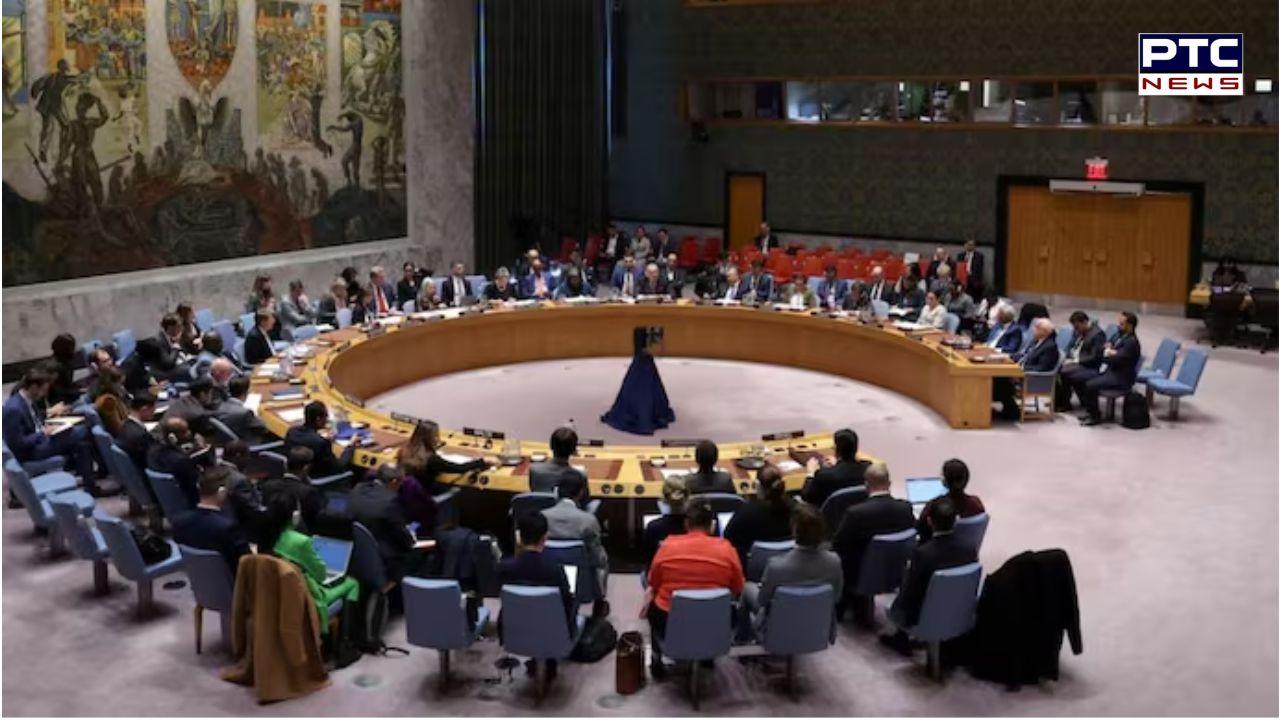

UNSC meet on India-Pakistan tensions ends without outcome as Pak raises Kashmir to divert from Pahalgam attack
PTC Web Desk: Amid soaring tensions between India and Pakistan, a closed-door meeting of the United Nations Security Council (UNSC), convened at Pakistan’s request, concluded without any statement, resolution, or official outcome. The inconclusive discussion came just hours after UN Secretary-General Antonio Guterres warned that the situation between the two nuclear-armed neighbours had reached its most volatile point in years.
The UNSC consultation was called by Pakistan, which currently holds a non-permanent seat in the 15-member council. As Council president for May, Greece scheduled the meeting for the afternoon of May 5. Unlike formal UNSC sessions, which are held in the Council Chamber around the iconic horseshoe table, this consultation took place in an adjacent room and remained off-record.
Pakistan’s Permanent Representative to the UN, Ambassador Asim Iftikhar Ahmad, used the platform to level accusations against India, raising the Kashmir issue and alleging military buildup along with provocative statements by New Delhi. He also described India’s recent suspension of the Indus Waters Treaty as an "act of aggression," which India views as a calculated effort to deflect international attention from Pakistan’s alleged support of cross-border terrorism—particularly in the wake of the April 22 Pahalgam Terror Attack that killed 26 civilians in Jammu and Kashmir.
India’s former Permanent Representative to the UN, Ambassador Syed Akbaruddin, dismissed the significance of the meeting, stating that no "consequential outcome" could be expected from a discussion where a party attempts to shape perceptions through Council membership. "India will parry such Pakistani efforts," he asserted in comments to PTI.
Assistant Secretary-General Khaled Mohamed Khiari, who oversees Asia-Pacific and Middle East affairs under the Departments of Political and Peacebuilding Affairs and Peace Operations, briefed the Council on behalf of both entities. Following the session, Pakistani envoy Asim Iftikhar was expected to address the media.
This is not the first time Pakistan has attempted to internationalise the Kashmir dispute via the UNSC. In August 2019, China requested a similar closed consultation to discuss India’s decision to revoke Jammu and Kashmir’s special status. That meeting also ended without any outcome or statement, reinforcing the Council’s position that Kashmir remains a bilateral issue between India and Pakistan.
Earlier on Monday, Secretary-General Antonio Guterres expressed grave concern about escalating tensions. “It pains me to see relations reaching a boiling point,” Guterres said, referencing the deadly Pahalgam attack. He underscored that targeting civilians is unacceptable and stressed the urgent need to avoid military confrontation.
“Now is the time for maximum restraint and stepping back from the brink,” Guterres urged. “A military solution is no solution. Those responsible for attacks on civilians must be brought to justice through credible and lawful means.”
- With inputs from agencies
